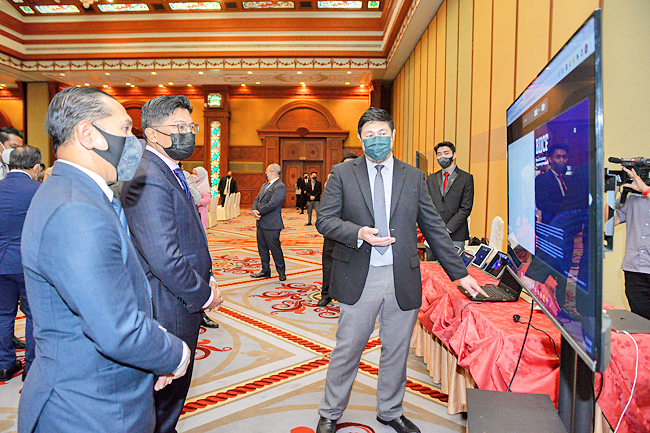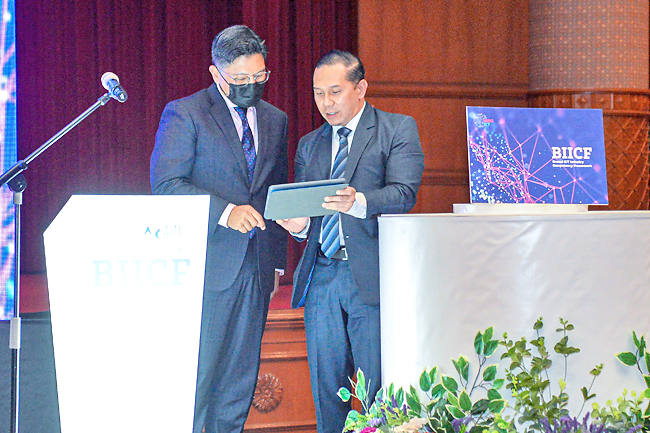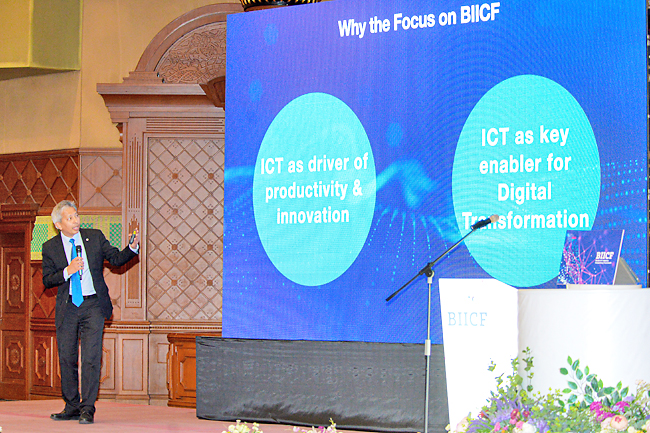Azlan Othman
The Manpower Industry Steering Committee Working Group for ICT Sector (MISC-WG ICT) yesterday notched a new milestone with the launching of the Brunei ICT Industry Competency Framework (BIICF).
Minister of Transport and Infocommunications cum guest of honour Pengiran Dato Seri Setia Shamhary bin Pengiran Dato Paduka Haji Mustapha officiated the launch at The Rizqun International Hotel.
The event was organised by the Authority for Info-communications Technology Industry of Brunei Darussalam (AITI) as the Secretariat for MISC-WG ICT, with the support of the Manpower Planning and Employment Council (MPEC).
AITI Chief Executive cum MISC-WG ICT Co-Lead Ir Haji Jailani bin Haji Buntar pointed out that the framework had been prepared through extensive and concerted effort by the BIICF working group, together with the Competencies Development Technical Group of the MISC-WG ICT, which comprises representatives from the government, industry, institutes of higher learning and training providers.
MISC-WG ICT representative Haji Sairul Rhymin bin CA Mohamed delivered a presentation titled ‘BIICF for Better Career and Performance in ICT Industry.’
The guest of honour later toured a showcase on BIICF-related programmes.



Permanent secretaries, deputy permanent Secretaries, AITI members of MISC co-leads, MISC-WG ICT members, senior government officials, as well as representatives from institutes of higher learning and industry also attended.
BIICF was developed to support the Brunei Vision 2035 and Digital Economy Masterplan 2025. It aims to ensure local ICT professionals have the competencies to perform their jobs, and to guide them with the required skills aligned with the industry’s needs.
The framework has identified 79 technical and soft skills competencies for 20 job roles across six sub-sectors of the ICT industry, namely, IT Services; telecommunications and network; applications and solutions development; ICT security; digital media; and data and artificial intelligence.
IT technician, systems engineer, applications developer, solutions architect, data analyst, data engineer, cyber risk analyst and security engineer were identified as critical job roles that are of high demand. This is based on the findings from the ICT manpower survey and stakeholder’s engagement held by MISC-WG ICT with the industry in 2020.
Key information provided in the BIICF includes job titles, functional group, job description, critical work function, entry requirements, required technical competencies and soft skills with proficiency level, and recommended technical training courses. The framework thus serves as a comprehensive guide on ICT industry job roles, skills and competency requirements, which provides a valuable and practical reference for stakeholders – namely, industry, academia, government, professional individuals, students and training providers for career planning, development, training and certifications.
Aside from the launch, MISC-WG ICT and AITI have lined up socialisation sessions to serve as a platform for employers and learning institutions to explore more about BIICF and how to effectively apply it for career planning, training and talent development.


